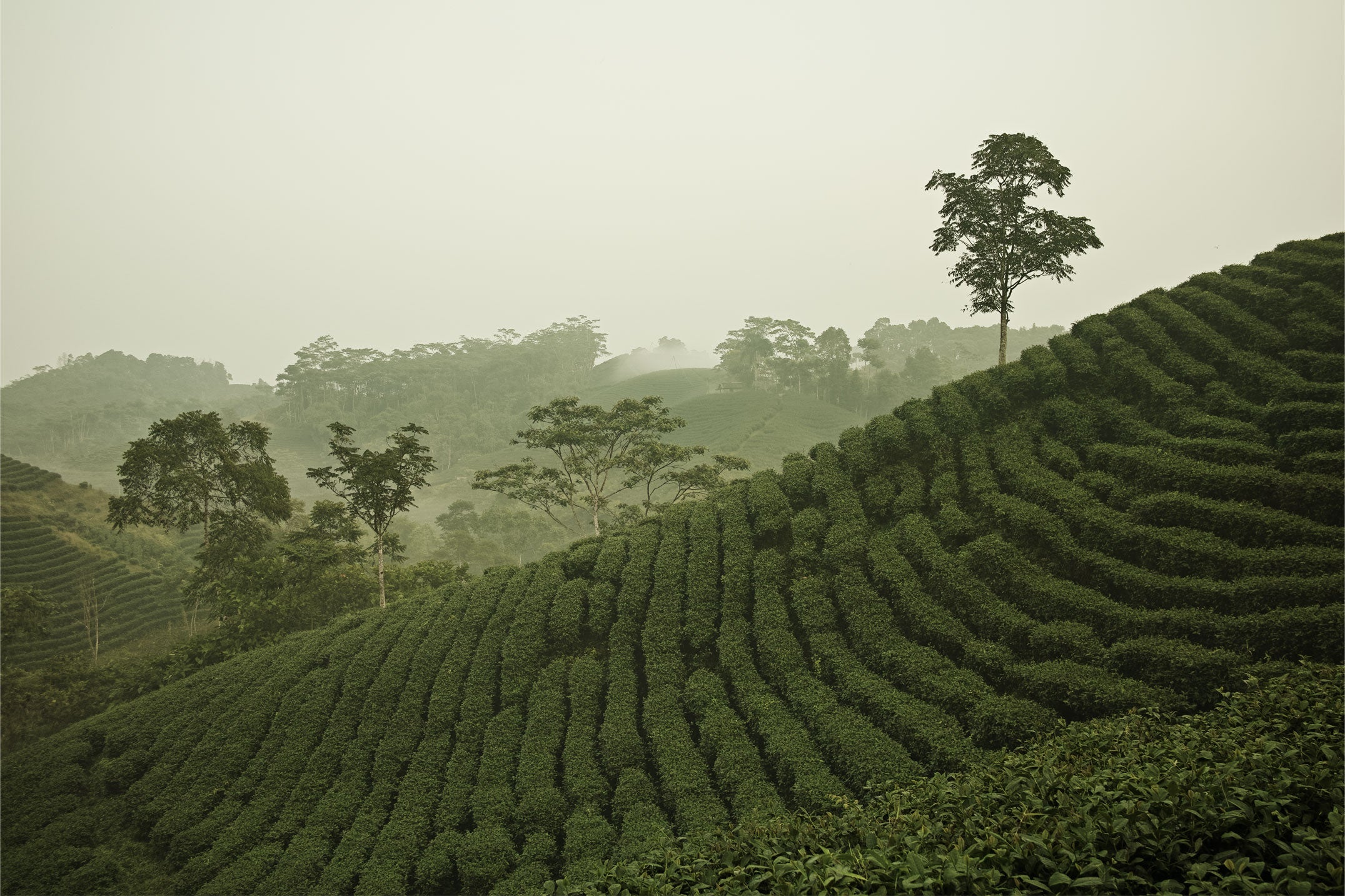
Tea Cultivation & Indonesian Terroir
Indonesia’s highland teas reflect a distinctive terroir shaped by volcanic soils, cool mists, stowage rainfall, and strong diurnal temperature shifts—producing exceptional aroma, clarity, and complexity.
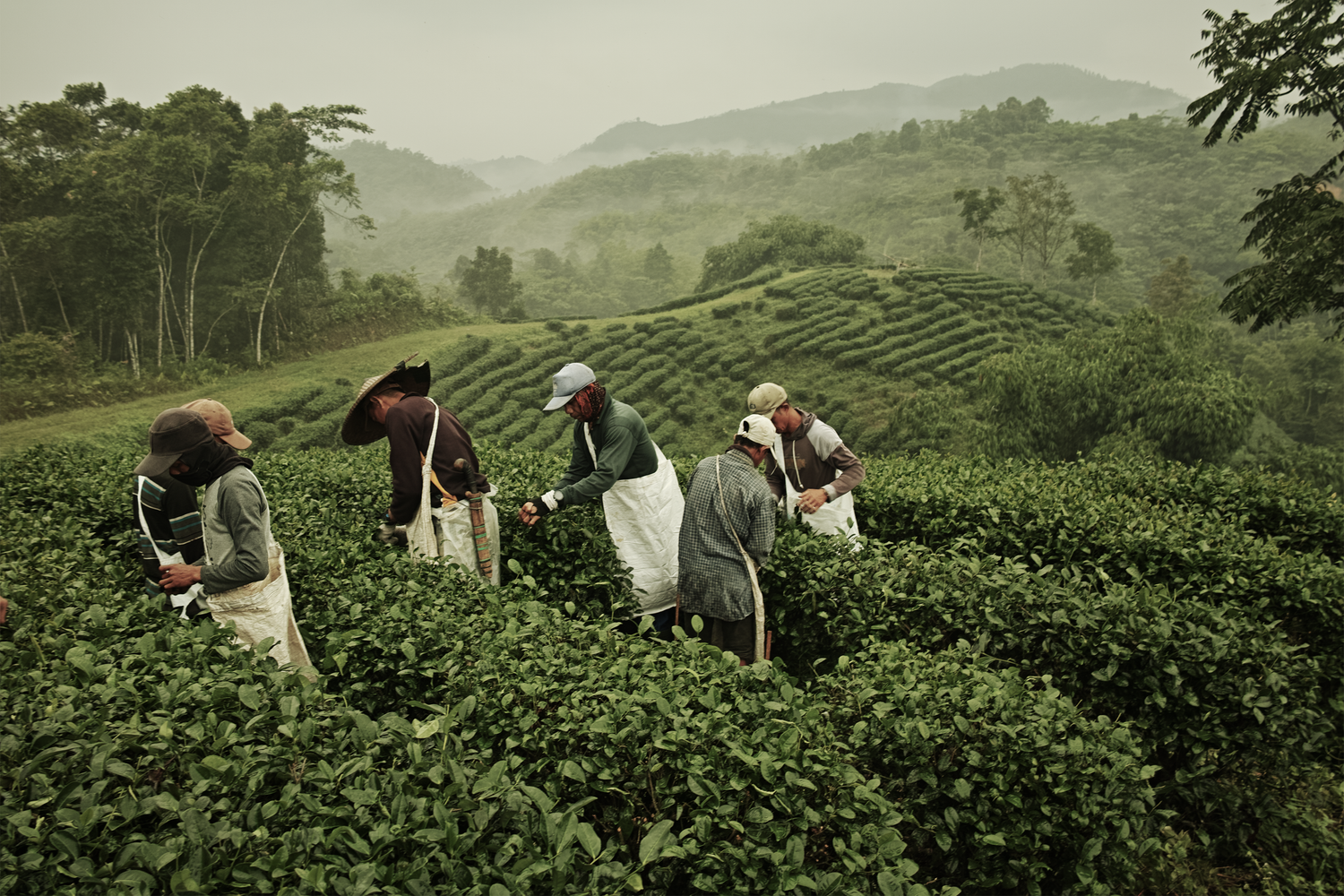
The Indonesian Archipelago
Tea, Climate & Terroir
Indonesia’s diverse climate and volcanic soils support the cultivation of tea, herbs, spices, roots, and medicinal plants across its vast archipelago. In highland regions above 1,000 meters, tea thrives in cool temperatures, misty air, and strong diurnal shifts that slow growth and intensify flavor and aroma.
The volcanic slopes, composed of fertile Andosols rich in minerals like potassium and magnesium, also nurture aromatic herbs such as lemongrass, java basil, and torch ginger, along with deep-rooted spices like turmeric, ginger, and galangal.
In the coastal lowlands, warm temperatures and high humidity support sun-loving plants like pandan, citronella, and cloves. This broad ecological diversity, combined with centuries of traditional farming and organic practices, enables Indonesia to produce a wide array of botanicals that are potent, flavorful, and rich in essential oils—each one deeply rooted in the country’s unique terroir, cultural heritage, and exceptional biodiversity.
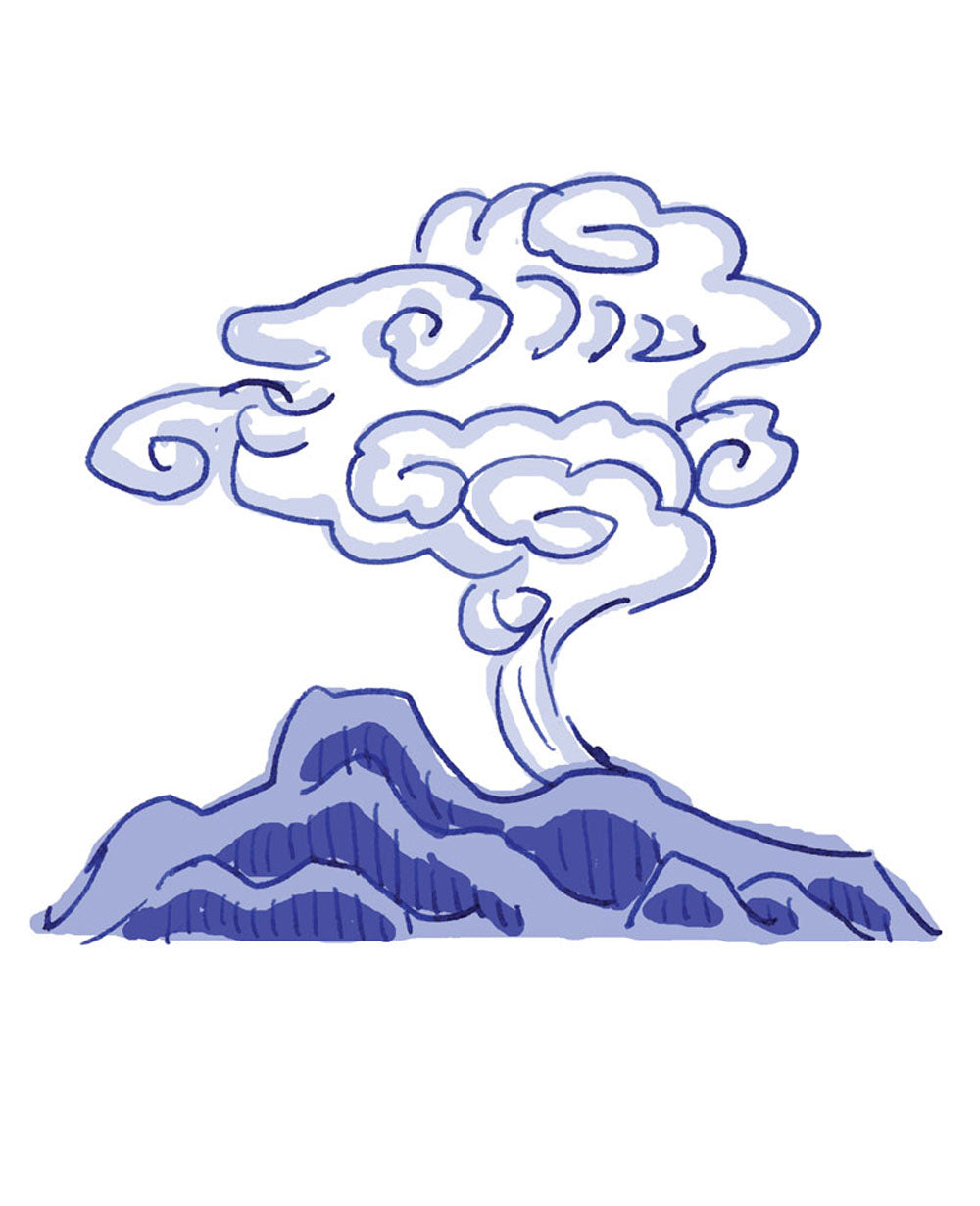
Volcanic Geology
Mineral-Rich Andosol Soils
The slopes of Indonesia’s volcanoes are covered with Andosols—fertile soils formed from volcanic ash. Rich in minerals like potassium, phosphorus, and magnesium, these slightly acidic soils have excellent water retention, drainage, and structure. Their loose texture supports deep root growth, making them ideal for cultivating tea, spices, roots, and medicinal plants. At higher elevations, Andosols interact with cool, misty climates to enhance essential oil content, antioxidants, and flavor compounds. Plants grown in these conditions develop aromatic clarity and complexity. As a foundation of Indonesia’s terroir, Andosols shape the distinct sensory character of the country’s diverse botanical harvests.
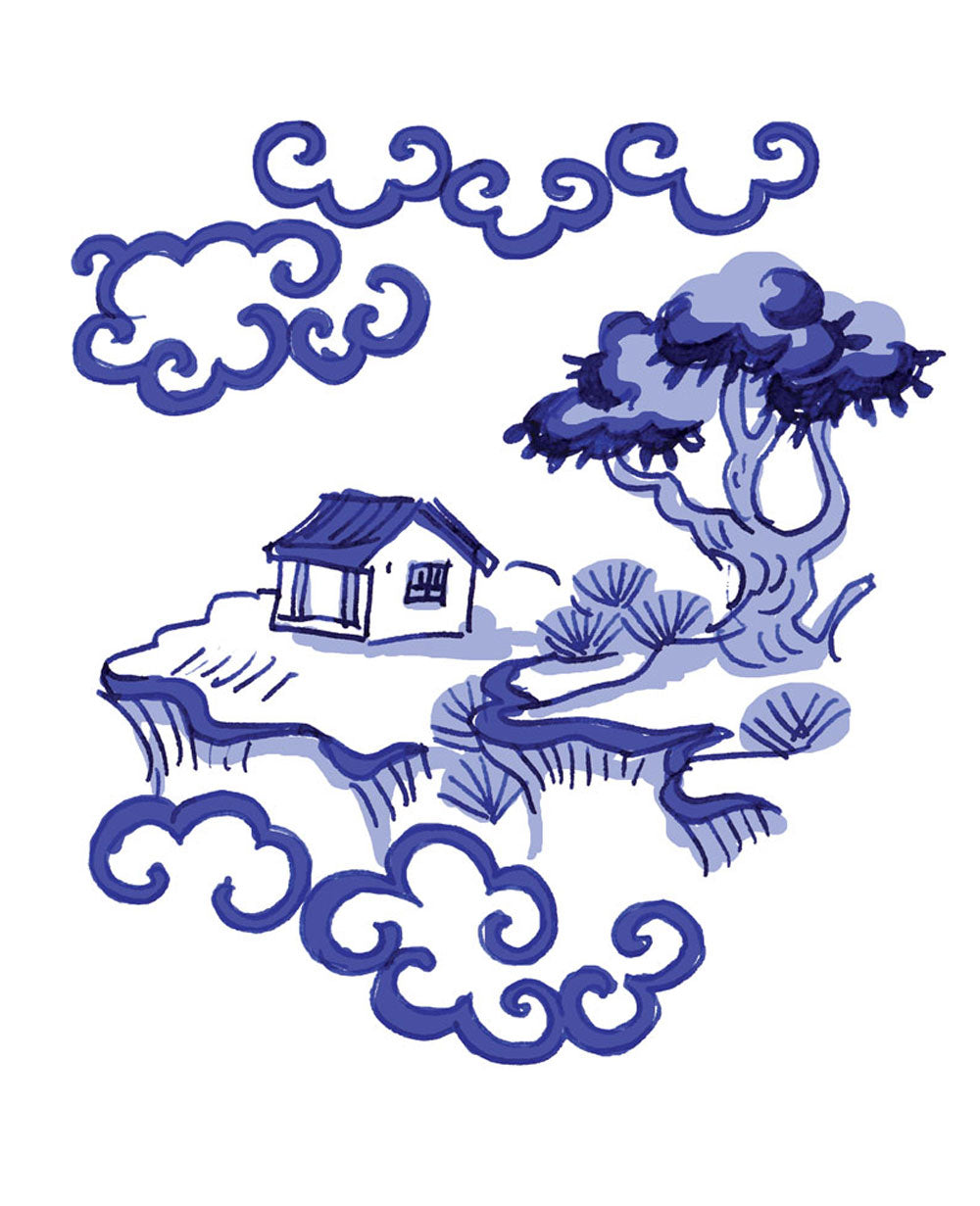
Atmospheric Moisture
Fog & Dew
In Java’s high-altitude regions, plant hydration comes not just from rain but also from fog, low-lying clouds, and nightly dew. As humid air cools overnight, fine droplets condense on leaves, providing consistent moisture—especially vital during the dry season. This gentle hydration reduces heat stress, preserves essential oils, and supports continuous growth in sensitive herbs like mint, chamomile, and lemon verbena. It also helps regulate leaf temperature and maintains plant vitality without saturating the soil. Combined with volcanic soils and stowage rainfall, this fog-fed moisture system is a key element of the distinctive terroir behind Java’s highland-grown teas and botanicals.
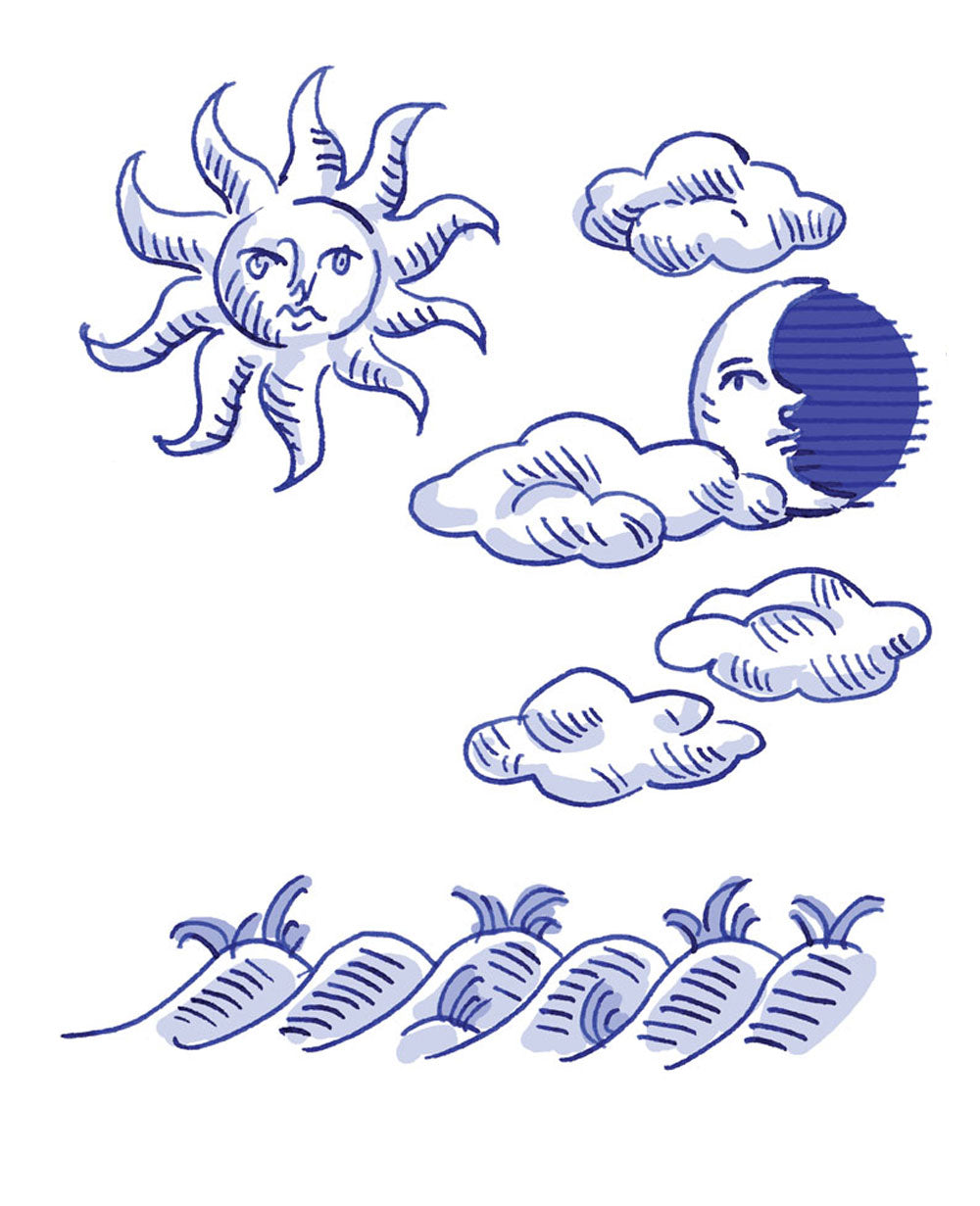
Diurnal Effect
Temperature Variation
Tea cultivation in Java’s highlands, particularly around 1,000 meters, benefits from strong diurnal temperature shifts—warm days near 25°C and cool nights dropping to 10–15°C. This daily variation enhances tea quality by balancing growth and flavor development. Daytime warmth drives photosynthesis, while cooler nights slow metabolism, allowing leaves to retain antioxidants, amino acids, and aromatic compounds. The result is tea with greater clarity, structure, and refined aroma. Cool nights also reduce pest pressure and support plant resilience. Alongside volcanic soils and consistent moisture from fog and dew, the diurnal cycle plays a crucial role in shaping the distinct terroir of Javanese teas.

Orographic Effect
Stowage Rainfall & Moisture Capture
South- and east-facing slopes of Javanese volcanoes above 1,000 meters benefit from a unique rainfall pattern known as stowage. Moist air from the Indian Ocean rises with southern and southeastern winds, cools along the slopes, and condenses—producing localized rain, mist, and persistent humidity. This orographic effect continues even during dry months, maintaining steady moisture through fog and dew. These sheltered microclimates are ideal for tea cultivation. Cool air, cloud cover, and consistent moisture slow leaf growth, enhance aromatic compounds, and protect young leaves from sun stress. The result is the refined character and distinct terroir of highland Javanese teas.
Frequently Asked Questions
What does Single Estate and Single Origin mean?
Single Estate means the tea is cultivated, harvested, and processed on a single tea estate — allowing full traceability and unique character shaped by that specific location.
Single Origin refers to ingredients sourced from one specific region, ensuring purity, consistency, and a clear expression of that region’s terroir.
What's unique about Indonesian tea cultivation and terroir?
Indonesian tea cultivation thrives in volcanic highlands with mineral-rich Andosol soils, cool misty climates, and strong diurnal shifts. Fog, dew, and stowage rainfall provide gentle hydration, while diverse microclimates support rich biodiversity. This unique terroir enhances flavor, aroma, and potency, making Indonesian teas and botanicals truly distinctive.
Why is organic better?
Organic farming avoids synthetic chemicals and promotes soil health, biodiversity, and sustainability. By choosing organic, you enjoy ingredients free from artificial additives, while supporting practices that respect nature and the people who grow the crops. In our experience, organic farmers are very passionate about the produce and envirorment, these are values we align with.
What's the benefit of cotton tea bags?
Hand-sewn natural cotton tea bags allow tea leaves to fully bloom, releasing their full flavor and aroma. Unlike bleached paper bags that can alter taste or plastic ‘silk’ bags that shed harmful microplastics, cotton bags are chemical-free, biodegradable, and sustainable - offering a pure, planet-friendly tea experience.
Can my order be gift wrapped?
Yes! You can choose from our Signature Print Wrapping or Fabric Gift Pouch options during checkout. We’ll wrap your order with care so it’s ready to gift on arrival.
Can I add a personal message?
Yes — you can include a personal message at checkout when selecting the giftwrapping option, and we’ll handwrite it on a gift card for a warm, thoughtful touch.






